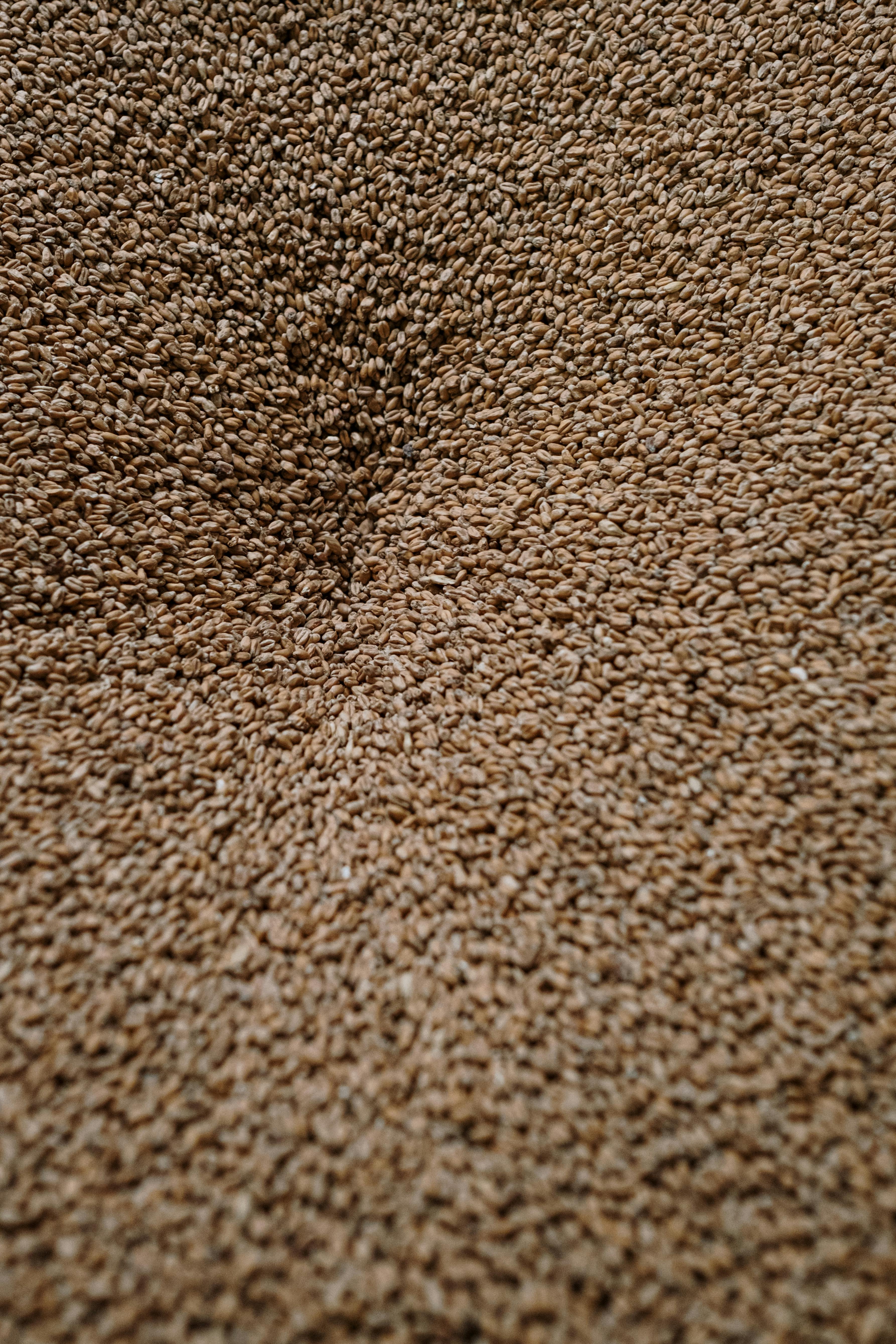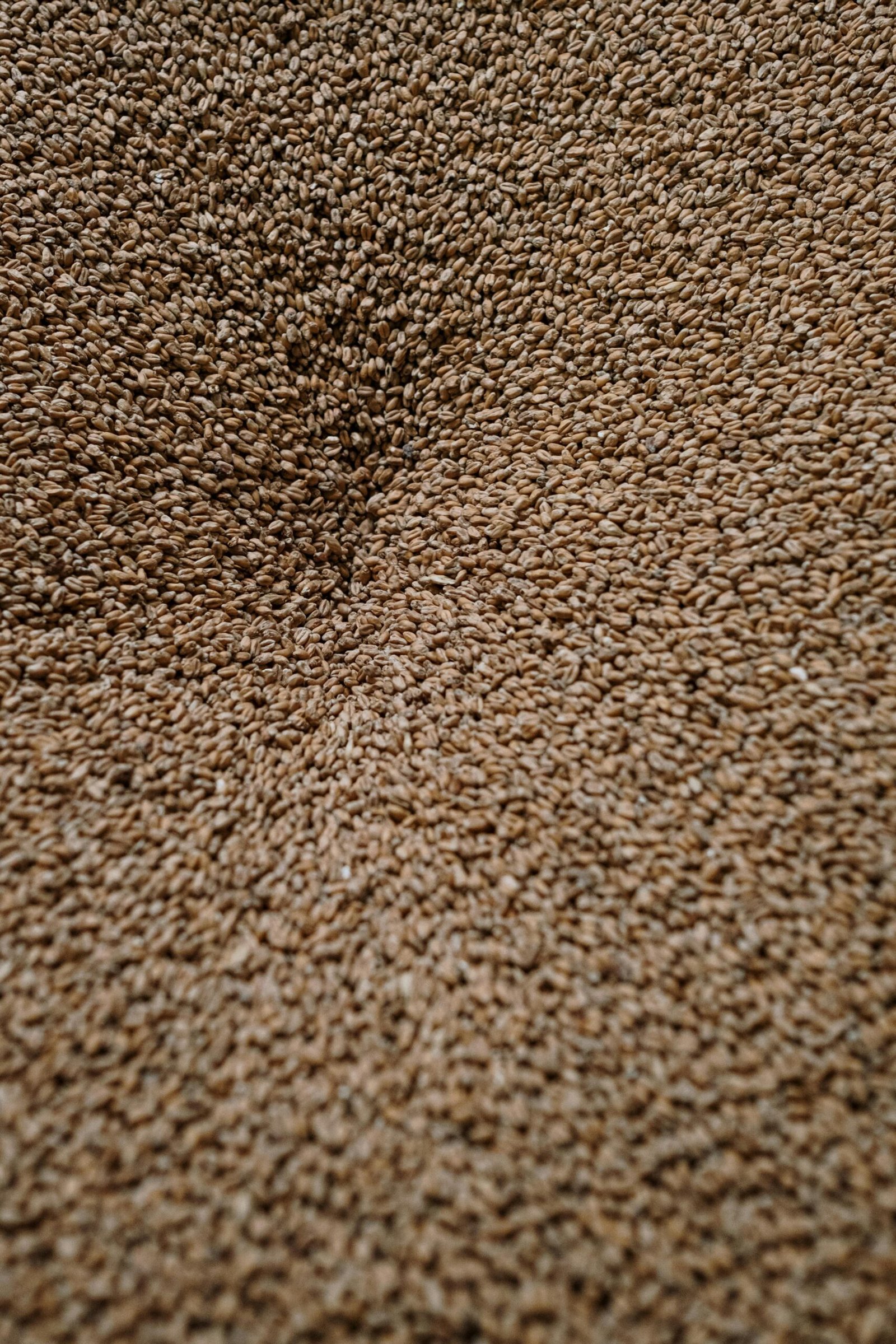I’m here to spill the beans on a beauty secret that’s been making waves in the health and wellness community: fermented foods. Yes, you heard it right. Those tangy, probiotic-packed goodies that are not only good for your gut but also for your skin. It might sound unconventional, but trust me, the benefits of incorporating fermented foods into your diet go far beyond improved digestion. They hold the key to unlocking a radiant and healthy complexion, from the inside out. So, get ready to indulge in sauerkraut, kimchi, and kombucha as we explore the surprising connection between fermented foods and glowing skin.
What are fermented foods?
Fermented foods are food products that have undergone a process of fermentation, wherein natural bacteria, yeasts, or fungi convert sugars and carbohydrates into alcohol, acids, or gases. This transformative process not only enhances the flavor and texture of the food but also introduces beneficial microorganisms that can have a positive impact on our overall health, including our skin.
Definition of fermented foods
Fermented foods are a diverse range of food products that have been produced through the process of fermentation. This process involves the breakdown of complex carbohydrates and sugars by microorganisms, which results in the production of beneficial compounds such as lactic acid, probiotics, and enzymes. Some common examples of fermented foods include yogurt, kefir, sauerkraut, kimchi, miso, tempeh, and kombucha.
Examples of fermented foods
Yogurt: Made from the fermentation of milk by lactic acid bacteria, yogurt is a popular fermented food that is known for its abundance of probiotics. It is rich in nutrients like calcium, protein, and vitamins, and can be enjoyed as a snack or incorporated into various dishes.
Kefir: Similar to yogurt, kefir is a fermented milk product that is cultured with kefir grains. These grains are a combination of bacteria and yeast, which impart a unique tangy flavor and provide a diverse range of probiotics. Kefir is an excellent source of calcium, protein, and B vitamins.
Sauerkraut: Fermented cabbage, sauerkraut is a traditional fermented food that is rich in probiotics and fiber. It undergoes lactic acid fermentation, wherein beneficial bacteria break down sugars in cabbage and produce lactic acid. Sauerkraut can be used as a topping or side dish to add a flavorful and crunchy element to meals.
Kimchi: A staple in Korean cuisine, kimchi is a spicy and tangy fermented vegetable dish. Typically made with napa cabbage, radishes, and various seasonings, it undergoes a similar fermentation process to sauerkraut. Kimchi is not only a great source of probiotics but also offers a range of vitamins, minerals, and antioxidants.
Miso: Originating from Japan, miso is a traditional fermented paste made from soybeans, rice, or barley. It is created by fermenting the ingredients with koji, a type of fungus, and salt. Miso is packed with beneficial enzymes, probiotics, and antioxidants, making it a nutritious addition to soups, marinades, and dressings.
Tempeh: A popular meat substitute in vegetarian and vegan diets, tempeh is made from fermented soybeans. It is formed into a firm patty or block and is rich in protein, fiber, vitamins, and minerals. The fermentation process enhances digestibility and increases the bioavailability of nutrients in tempeh.
Kombucha: A lightly effervescent, fermented beverage, kombucha is made from sweetened tea that undergoes fermentation by a symbiotic culture of bacteria and yeast (SCOBY). It is a rich source of beneficial bacteria, organic acids, and antioxidants. Kombucha is available in various flavors and is commonly consumed as a refreshing and probiotic-rich drink.
How do fermented foods benefit the skin?
The consumption of fermented foods can have several positive effects on the skin. Let’s explore some key benefits:
Promote a healthy gut
The gut and the skin are closely connected through a complex network known as the gut-skin axis. Consuming fermented foods introduces beneficial bacteria into the gut, helping to maintain a healthy balance of microorganisms. A well-balanced gut microbiota plays a crucial role in optimizing digestion, nutrient absorption, and overall immune function, which can contribute to healthier skin.
Boost digestion and nutrient absorption
Fermented foods are rich in enzymes and probiotics, both of which are essential for optimal digestion. Probiotics help to break down food and enhance nutrient absorption in the gut. By improving digestion and nutrient assimilation, fermented foods can indirectly support the health and appearance of the skin.
Reduce inflammation
Inflammation is a common underlying cause of various skin conditions, such as acne, eczema, and psoriasis. The beneficial bacteria present in fermented foods can help reduce inflammation by modulating the immune response and suppressing pro-inflammatory markers. Consuming fermented foods may help calm and soothe inflamed skin, promoting a clearer complexion.
Support a balanced microbiome
The skin has its own microbiome, consisting of diverse bacteria that play a crucial role in maintaining skin health. By promoting a healthy gut microbiota, fermented foods indirectly influence the balance and diversity of the skin microbiome. A well-balanced skin microbiome is essential for maintaining hydration, protecting against pathogens, and supporting healthy skin function.
Enhance detoxification
Fermented foods contain beneficial compounds, such as organic acids and antioxidants, that support the body’s natural detoxification processes. These compounds can help eliminate toxins and waste products that can contribute to skin issues. By supporting detoxification, fermented foods can assist in promoting a clear and radiant complexion.
Alleviate skin conditions
The consumption of fermented foods has been associated with improvements in various skin conditions. For example, the probiotics in yogurt and kefir have been shown to help reduce symptoms of acne and eczema. Similarly, the anti-inflammatory properties of fermented foods like kimchi and miso can help alleviate symptoms of inflammatory skin conditions.

This image is property of images.pexels.com.
Types of fermented foods for a healthy complexion
Incorporating a variety of fermented foods into your diet can provide a range of benefits for your skin. Here are some popular options:
Yogurt
Yogurt is a versatile and delicious fermented food that can be enjoyed on its own or incorporated into meals and snacks. Opt for plain, unsweetened yogurt to avoid added sugars and artificial ingredients. You can enhance the flavor by adding fresh fruits, nuts, or a drizzle of honey.
Kefir
Similar to yogurt, kefir is a tangy and probiotic-rich fermented milk drink. It can be enjoyed on its own or blended into smoothies for added creaminess and nutrition. Try experimenting with different flavors and combinations to find your favorite kefir blend.
Sauerkraut
Sauerkraut is a traditional fermented food made from finely shredded cabbage that has been fermented with salt and other seasonings. It offers a tangy and crunchy addition to meals and can be used as a topping for sandwiches or as a flavorful side dish. Look for naturally fermented sauerkraut without added preservatives.
Kimchi
Kimchi is a Korean staple that combines fermented cabbage, radishes, and various spices. It is known for its spicy and tangy flavors and can be enjoyed as a side dish, added to stir-fries, or used to top off rice bowls. Explore different varieties of kimchi to find the one that suits your taste preferences.
Miso
Miso is a fermented soybean paste that adds a rich umami flavor to dishes. It is commonly used in soups, marinades, dressings, and glazes. There are different types of miso available, ranging from light and mild to dark and robust, so you can choose the one that complements your dishes the best.
Tempeh
Tempeh is a fermented soybean product that serves as an excellent meat substitute for vegetarian and vegan diets. It has a nutty flavor and a firm texture, making it a versatile ingredient in stir-fries, sandwiches, and salads. Marinating tempeh can infuse it with even more flavor before cooking.
Kombucha
Kombucha is a fizzy and tangy fermented tea drink that comes in various flavors. It can be a refreshing alternative to sugary sodas and juices. Look for kombucha with minimal added sugars and check the label to ensure it contains live cultures. Start with small servings and gradually increase as per your preference.
Nutrients in fermented foods for skin health
Fermented foods are not only rich in beneficial microorganisms but also contain a range of essential nutrients that contribute to healthy skin. Here are some key nutrients found in fermented foods:
Probiotics
Probiotics are live bacteria and yeasts that are beneficial for the gut and overall health. They can support a healthy gut microbiota and indirectly benefit the skin. The strains of probiotics present in fermented foods may vary, but they commonly include lactobacilli and bifidobacteria. These probiotics help maintain a balanced gut microbiome and support optimal digestion, which can positively impact skin health.
Vitamins and minerals
Fermented foods can be excellent sources of vitamins and minerals that are essential for skin health. For example, yogurt and kefir are rich in calcium, which plays a vital role in maintaining skin integrity. They also contain B vitamins, which are important for skin cell metabolism. Fermented vegetables like sauerkraut and kimchi are packed with vitamins A and C, antioxidants that support skin health and natural collagen production.
Antioxidants
Many fermented foods contain a variety of antioxidants, which help neutralize harmful free radicals in the body. Free radicals can contribute to oxidative stress, leading to premature skin aging and damage. Antioxidants found in fermented foods, such as polyphenols and flavonoids, can help protect the skin from oxidative damage and maintain a youthful appearance.

This image is property of images.pexels.com.
Incorporating fermented foods into your diet
To reap the benefits of fermented foods for your skin, consider the following tips for incorporating them into your diet:
Start with small portions
If you are new to fermented foods, it is best to start with small servings and gradually increase your intake. This allows your body to adjust to the introduction of beneficial microorganisms and reduces the likelihood of digestive discomfort.
Experiment with different recipes
Fermented foods can be incorporated into a wide range of recipes to add flavor and nutrition. Experiment with different dishes, such as smoothies with kefir, salads with sauerkraut, or stir-fries with kimchi. Get creative and explore various combinations to find what you enjoy the most.
Include a variety of fermented foods
To maximize the benefits, aim to include a variety of fermented foods in your diet. This not only ensures a diverse range of beneficial bacteria but also provides a wider array of nutrients. Rotate between yogurt, kefir, sauerkraut, kimchi, miso, tempeh, and kombucha to enjoy the unique flavors and benefits of each.
Precautions and considerations
While fermented foods offer numerous health benefits, there are some precautions and considerations to keep in mind:
Food allergies and intolerances
If you have any known food allergies or intolerances, it’s important to be cautious when trying new fermented foods. Some common allergens, such as milk in yogurt or soy in miso and tempeh, may be present in certain fermented products. Read labels carefully, and if in doubt, consult with a healthcare professional or allergist.
Choosing quality fermented foods
Not all fermented foods are created equal. Opt for high-quality, organic, and naturally fermented products that don’t contain artificial additives, preservatives, or excessive amounts of sugars. Look for products that state live and active cultures on the label, ensuring that the beneficial microorganisms are present.
Avoiding excessive consumption
While fermented foods are generally safe and beneficial, it’s essential to consume them in moderation. Excessive consumption of certain fermented foods, like kombucha, can lead to an imbalance in gut bacteria or digestive issues. Pay attention to portion sizes and listen to your body’s feedback to determine what works best for you.

This image is property of images.pexels.com.
Potential side effects of fermented foods
While most people can enjoy fermented foods without any issues, some individuals may experience certain side effects, especially when consumed in excess. Here are some potential side effects to be aware of:
Gas and bloating
The introduction of new bacteria into the gut can sometimes cause temporary gas and bloating, especially for those with sensitive digestive systems. Starting with small servings and gradually increasing the amount can help minimize discomfort.
Digestive discomfort
In some cases, fermented foods can cause digestive discomfort, such as diarrhea or constipation, especially if consumed in excessive amounts. If you experience such symptoms, it might be helpful to reduce your intake or consult a healthcare professional to determine the underlying cause.
Allergic reactions
Individuals with known allergies or sensitivities to certain fermented foods, such as dairy or soy, may experience allergic reactions. It is important to read labels carefully and be aware of any potential allergens present in the fermented products you consume.
Combining fermented foods with skincare
In addition to consuming fermented foods, incorporating them into your skincare routine can provide additional benefits for your complexion. Here are some ways you can combine fermented foods with skincare:
Topical application of fermented skincare products
Many skincare products now include fermented ingredients like kombucha, miso, or yogurt extract. These products can help nourish the skin, enhance hydration, and support the natural renewal process. Look for serums, moisturizers, and masks that feature fermentation as a key component.
DIY fermented face masks
You can also create your own fermented face masks using ingredients like yogurt or kefir. Combine these fermented foods with other nourishing ingredients, such as honey, avocado, or oatmeal, to create a homemade mask that can improve skin hydration, reduce inflammation, and promote a healthy glow.
Consulting a dermatologist
If you have specific skin concerns or conditions, it is always beneficial to consult a dermatologist. They can provide personalized recommendations and guide you on how to incorporate fermented foods and fermented skincare products into your routine based on your skin’s unique needs.

Fermented foods and overall health
The benefits of fermented foods extend beyond skin health. Here are some additional ways fermented foods can contribute to your overall well-being:
Gut health and immune system support
The gut is at the core of overall health, and consuming fermented foods can contribute to a healthy gut microbiota. A balanced gut microbiome helps support a robust immune system, enhances nutrient absorption, and promotes overall well-being.
Weight management
Some research suggests that the consumption of fermented foods may be associated with better weight management. The probiotics found in fermented foods can influence appetite regulation, metabolism, and fat absorption, potentially leading to healthier body weight.
Mental health benefits
The gut-brain connection is well-established, and imbalances in gut health have been linked to mental health conditions like depression and anxiety. By supporting a healthy gut microbiota, fermented foods may indirectly contribute to better mental health and overall well-being.
Conclusion
Incorporating fermented foods into your diet can have a multitude of benefits for your skin and overall health. From promoting a healthy gut to reducing inflammation and supporting detoxification, fermented foods offer a natural and delicious way to nourish your skin from the inside out. Experiment with different varieties of yogurt, kefir, sauerkraut, kimchi, miso, tempeh, and kombucha to find the ones that you enjoy and that provide the most benefits for your complexion. Remember to start with small servings, choose high-quality fermented products, and listen to your body’s feedback to ensure a positive and enjoyable experience with fermented foods. So why wait? Embrace fermented foods today and unlock the potential for glowing skin and overall wellness.


